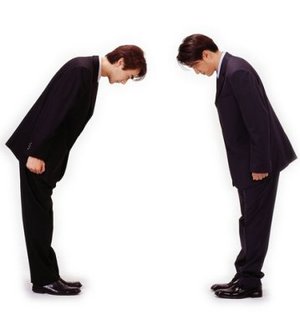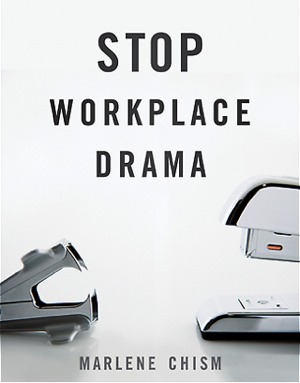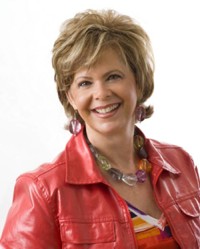 What keeps you up at night? Are you getting “caught in the middle” of relationship squabbles and power struggles? Do you feel anxiety or fear around the economy, your job, or your personal level of success? Such drama always drains your energy and impacts your personal effectiveness.
What keeps you up at night? Are you getting “caught in the middle” of relationship squabbles and power struggles? Do you feel anxiety or fear around the economy, your job, or your personal level of success? Such drama always drains your energy and impacts your personal effectiveness.
According to Gallup, negativity costs U.S. businesses more than $3 billion in lost productivity each year.
To put an end to the negativity and energy drain, especially in the workplace, a good friend of mine, Marlene Chism, who specializes in helping people ‘stop the drama’, has a new book called, Stop Workplace Drama, that focuses right where our wallets need it most…
The brain changes as a function of where you put your attention, according to Ellen Weber Ph.D, Director of the MITA International Brain Based Center. Every time you complain, you grow a new brain cell for the purpose of complaining.
It’s like your brain grows more coated with Teflon after each complaint. The positive will simply slide right off.
You say that drama has three components. What are they?
There is always a lack of clarity. It’s the voice in your head that makes you doubt your ability, or the fear that you don’t have enough influence, time or money. Another indicator of drama is a relationship problem. And finally, when there is drama, there is always resistance.
Your fifth principle in the book is stopping relationship drama. What does this mean?
This principle is based on The Karpman Drama Triangle. When relationships are dysfunctional, you will see three patterns emerge: the victim, the persecutor, and the rescuer. We all know what victim behavior is: “It’s not my fault…” or “There’s not enough time.” It’s the finger pointing, the pouting, the excuses. This drives managers crazy.
But not all relationships are about people. I jokingly tell everyone in my presentations that the best relationship advice I ever got was to fall in love with the phone. When I started my career, I didn’t realize what a wonderful sales tool the phone was, and I avoided it. I had a bad relationship with it. I felt like a victim, because although I had the skills to use the phone, I had negative thoughts about the calls. So when there is drama, look for a relationship issue, and that will help you get to the core of the problem.
How have you applied this concept in your life?
One way that I stepped into a new truth is that I changed the “us versus them” mentality that I had at one time. Everything is relational, and if you want change, first see yourself differently. If you want to change a relationship with another person, just learn how to “see” that person differently.
 How can we “see others differently”?
How can we “see others differently”?
We have a relationship with someone because of the way we think about them. Decades ago, when I was on the floor as a factory worker, I had a boss that I did not respect. I viewed him as “a rock that could not be reasoned with.” I had good evidence to support my view, and plenty of people at many levels who would have agreed with my assessment. However, when I got perfectly clear (about my desires and intentions), I decided I needed to see him differently. I started seeing him as a fellow worker—a human being who had struggles just like me. Then I decided to make my decisions based on who I was, not on how he behaved. I made a new commitment and I was at peace. From that decision, our relationship immediately shifted toward the positive.
Is this related to what you call the “Integrity Gap”?
Yes. The definition of integrity is to be complete and whole. When you are out of integrity, it means you are divided. Another word for this is double-minded. When you are unaware of competing intentions, you will experience anxiety, confusion or a lack of peace, and this mental and emotional state will impact your personal performance in various ways — even in your physical body.
For example, if a manager avoids a difficult conversation, it is because there is confusion about what is more important—solving the problem or keeping the peace. In effect, you have confusion because of competing desires.
What are the most common obstacles that get in the way of our integrity?
 An obstacle can be a person, a situation, or a mindset. For example, right now the biggest obstacle for many is the economy; yet there are those who do not see the economy as an obstacle but an opportunity. Therefore, an obstacle is really about perception. Actually, I want to make the distinction between two kinds of drama: ‘the drama’ versus ‘your drama’. The drama is the situation or the circumstance and your drama is your experience of the circumstance, or situation. Don’t confuse where you are with who you are.
An obstacle can be a person, a situation, or a mindset. For example, right now the biggest obstacle for many is the economy; yet there are those who do not see the economy as an obstacle but an opportunity. Therefore, an obstacle is really about perception. Actually, I want to make the distinction between two kinds of drama: ‘the drama’ versus ‘your drama’. The drama is the situation or the circumstance and your drama is your experience of the circumstance, or situation. Don’t confuse where you are with who you are.
For example, your boat springs a leak; that is the situation. No drama around it; just a leak in the boat. However, your experience could be magnified into drama: it’s the boat maker’s fault. This always happens to you. Now, life is over, and so on. In other words, your experience of the leak is different from the actual event, and if you experience the leak in the boat as threatening, it becomes “your drama.”
In the example of my boss and me, our experience of each other changed.
When I left the factory, he hugged me, congratulated me and told me he knew I would be successful. That is why I know that what I teach works. I have lived it even at the bottom level and I continue to live it to this day.
 Join Marlene tomorrow for a free 1-hour tele-seminar to learn the other eight principles from the book and how these workplace rules can solve problems in your personal life as well: www.stopworkplacedrama.com
Join Marlene tomorrow for a free 1-hour tele-seminar to learn the other eight principles from the book and how these workplace rules can solve problems in your personal life as well: www.stopworkplacedrama.com
Marlene Chism has a master’s degree in HR Development from Webster University and is author of the new book, Stop Workplace Drama . Marlene is also the creator of Leaders Developing Leaders Institute, an online membership for all levels of leadership.




















[…] Stopping Your Drama: Eight Principles to Calm the Workplace or Home […]
[…] Stopping Your Drama: Eight Principles to Calm the Workplace or Home […]
[…] Stopping Your Drama: Eight Principles to Calm the Workplace or Home […]